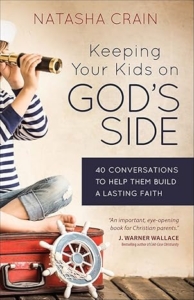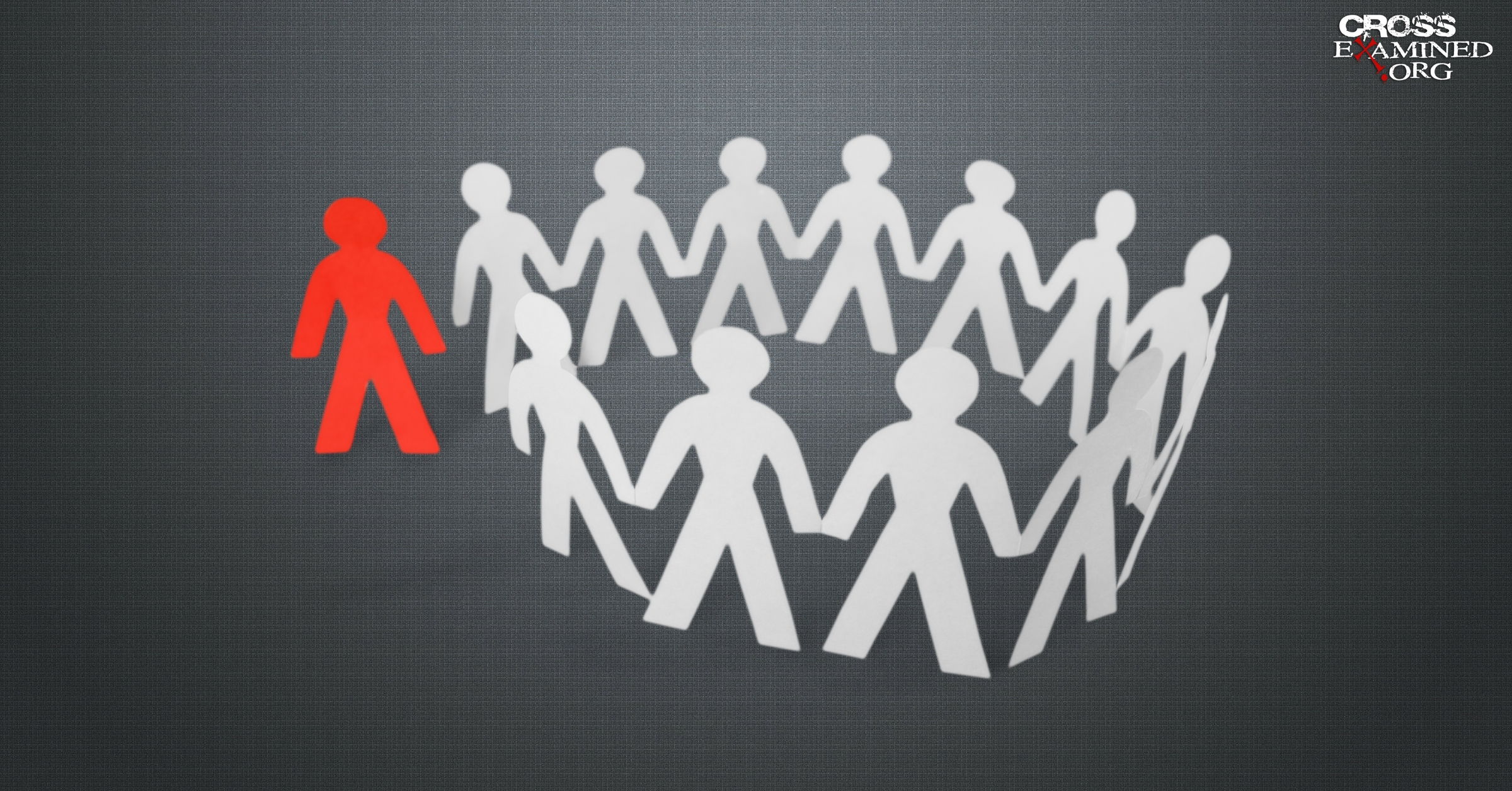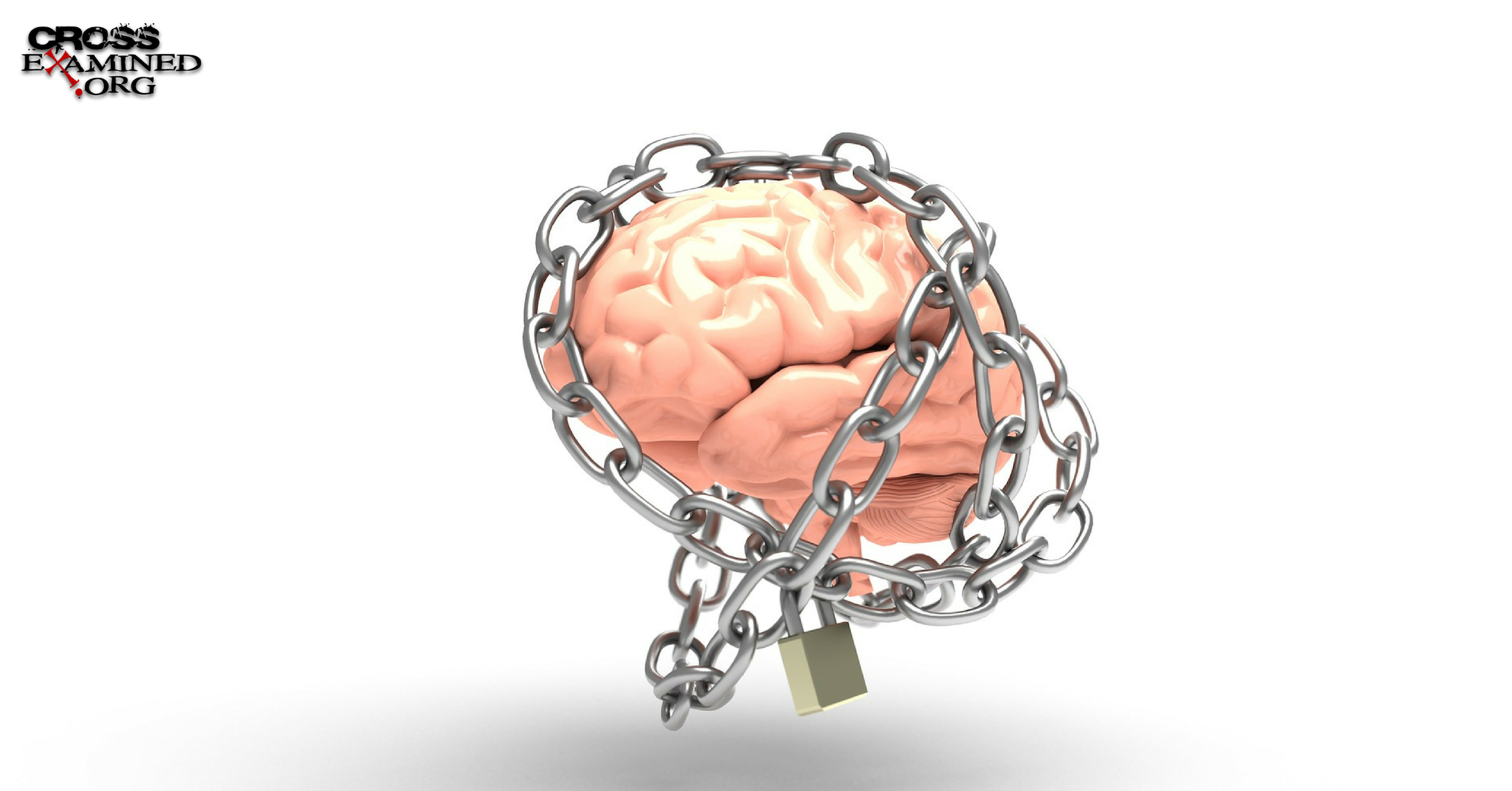By Natasha Crain
America is changing fast, and not in the direction we’d like.
In light of recent events, I don’t think I need to detail all the signs that point to an imploding society. We see it. We feel it. We fear it.
Instead, I want to focus on our role as Christian parents within a society at such a point as this. In particular, I’m concerned about some very harmful beliefs—both conscious and subconscious—that I’ve noticed some Christian parents have.
Today I want to highlight five of the worst beliefs we can have when our society is spiraling downward.
1. I’m doing my part to make society a better place by raising kids with good values.
I’ve heard some variation on this way too many times. Let me make this very clear: Raising kids with good values is not the same as raising kids who love Jesus. And there are two important reasons why focusing on good values rather than on Jesus will never fundamentally alter society.
First, without universal acceptance of an objective moral standard (God), society will always disagree about which values are good. Without God as the standard, the goodness of a value system is simply a matter of opinion. One person can claim abortion is morally acceptable and another person can claim it’s murder. “Good” values can’t rescue a society when there will never be fundamental agreement on how to define what’s good in the first place.
Second, the fundamental problem in a troubled society isn’t a lack of values. It’s sinful human nature. Even if everyone agreed on the same set of objective moral values, they would still sin and act contrary to those values. Society’s deepest need for healing, therefore, isn’t more people with good values (however those values are defined)—it’s more people who know and love Jesus, who acknowledge the ever-present reality of sin as the world’s ultimate problem, and who accept Jesus’ sacrifice as the solution to that problem.
There will never be complete peace on Earth. But when we, as Christian parents, stay focused on raising kids who love Jesus—not just raising kids with good values—we are raising a generation who can impact society in an eternally significant way: by raising more witnesses for Christ.
2. I don’t need to waste my time teaching my kids the falsities of others’ beliefs when they’re better served learning the truth of Jesus Christ.
This is what someone said in response to one of my blog posts about the importance of helping our kids understand the secular worldview. And it absolutely belongs on this list of the 5 worstbeliefs a Christian parent can have in an imploding society.
It’s well known, based on multiple independent research studies over more than a decade, that at least 60% of kids who grow up in Christian homes turn away from faith as young adults.These kids learned the truth of Jesus Christ…but when they encountered false claims to the contrary, they were led astray.
In a society that’s quickly turning away from God, kids will be exposed to claims against Christianity at exponentially increasing rates. When they start to see their beliefs in the context of such claims, they have to know how to evaluate those competing views. Think of it this way: Just because a football team knows what to do when they have a ball at practice with no opponents around doesn’t mean they’ll know what to do when thousands of pounds of force come at them in a real game. If they don’t know what the other team will do, and how to respond, they’ll fumble…they’ll make poor plays…they’ll be pushed back. Similarly, our kids won’t be living in a Christian vacuum. Thousands of pounds of force will be coming at theirbeliefs. You can ignore it, but statistics show your kids’ faith will likely not stand up again after it’s been tackled by today’s opponents. Why wouldn’t you prepare them for that?
(If you need help learning about the specific faith challenges of today’s secular world, how to explain those challenges to your kids, and figuring out what all that means for you as a Christian parent, please check out my new book, Keeping Your Kids on God’s Side: 40 Conversations to Help Them Build a Lasting Faith.)
3. God is in control, so whatever happens in our society is meant to happen. I’m not going to be concerned about it.
Allow me to be blunt: This is just plain laziness, whether a person wants to admit it or not.
Of course God is sovereign. But it’s not biblical to sit back and watch the world unfold because God is ultimately in control.
Did God tell the Israelites, “Just chill out. Don’t be concerned about Canaanite society. I’m in control and this ship is sailing regardless of what you do”? NO! He commanded the Israelites towage war against Canaanite society. The Israelites were used by God to execute judgment against them.
Did Jesus tell the disciples, “Just hang out here in Jerusalem after I’m gone and I’ll make sure the rest of the world hears the good news about me on my own?” NO! He commissioned the witnesses of his life, death, and resurrection to go out and tell the world about him…and to be willing to suffer and die in the process.
The fact of God’s sovereignty has never meant that we should relegate our faith to whatever status society wants to place on it. If we care about the world our kids are growing into, wemust be concerned about society’s changing moral and legal landscape and be willing to act on that concern accordingly.
4. My kids will learn what they need to know about the Bible at church.
If we’re going to raise kids who will represent Jesus in a society spiraling downward, they better be prepared to speak to the truth of the Bible—God’s Word to people in all societies. The Bible tells us where we came from (God), why we’re here (to have a relationship with God), the most significant problem we face (sin, leading to separation from God), the history of God bringing a solution to that problem (Jesus), how we should live our lives in response (putting Jesus first), and where we’re going (a final judgment of the whole world). I’m going to go out on a limb and say that’s pretty relevant stuff for today…and always.
Meanwhile, research shows that fewer than 1 in 10 Christian families read the Bible together in a given week.
As Christian parents, we should collectively feel that like a punch in the gut.
The belief that kids will learn what they need to know about the Bible at church is not conscious for most parents. But when we don’t study the Bible with our kids, our lack of action speaks to that subconscious belief. And it’s an undeniably wrong belief that will ultimately limit our kids’ effectiveness in engaging with a secular society.
As I wrote in my post, Why Your Kids Can Spend 600-Plus Hours in Church and Not Get Much Out of It, we have to remember that over the years a child attends Sunday school, teachers vary, curricula vary, and churches vary (as families move). Kids are handed various pieces of Christianity during that time, which they collect and store internally. But unless there is a consistent, focused, goal-oriented spiritual trainer in their life—a parent—those pieces will almost certainly lie around unconnected. This is especially true when it comes to their understanding of the Bible.
Furthermore, there are many things kids need to learn about the Bible that are never covered in most Sunday schools: How were the books in the Bible selected? Why were books left out of the Bible? How do we know we can trust the Bible’s authors? How do we know the Bible we have today says what the authors originally wrote? What about the supposed errors and contradictions in the Bible?
All of these questions are favorites for skeptics to weigh in on. But your kids won’t know what to make of their claims if you’ve assumed they’ll learn all this at church. They almost certainly won’t.
5. I’m sure things won’t get that bad.
I have been guilty of believing this until pretty recently.
But what a giant, dangerous deception it is.
To be sure, there are places in the world where Christians face persecution of a nature we may never see in America. If that’s your standard of bad, it may be true that things won’t get that bad.
But there are other kinds of bad that would represent an enormous change in the way of life for Christians in America…kinds of bad that are quickly becoming a reality, faster than most of us would have imagined. Every week (dare I say every day) there is a new headline that has negative implications for religious liberty in our country. Those headlines will keep rolling in.
We can ignore them, assuming things can’t get too bad. After all, this is America! Or we can look at such headlines like canaries in a coalmine—advanced warning signals of a precarious future for Christians in this country—and start taking more action in the public square on behalf of the next generation:
- Stay up-to-date on the latest news affecting Christians (The Stream is a great place to do so).
- Share articles representing Christian viewpoints on your social media.
- Actively discuss these issues with your friends–online and in person.
- Write politicians regarding key issues.
- Gain an active knowledge of what public schools in your area are teaching that may be of concern and act accordingly.
Rather than assuming things won’t get that bad, let’s work together to make sure they don’t.










